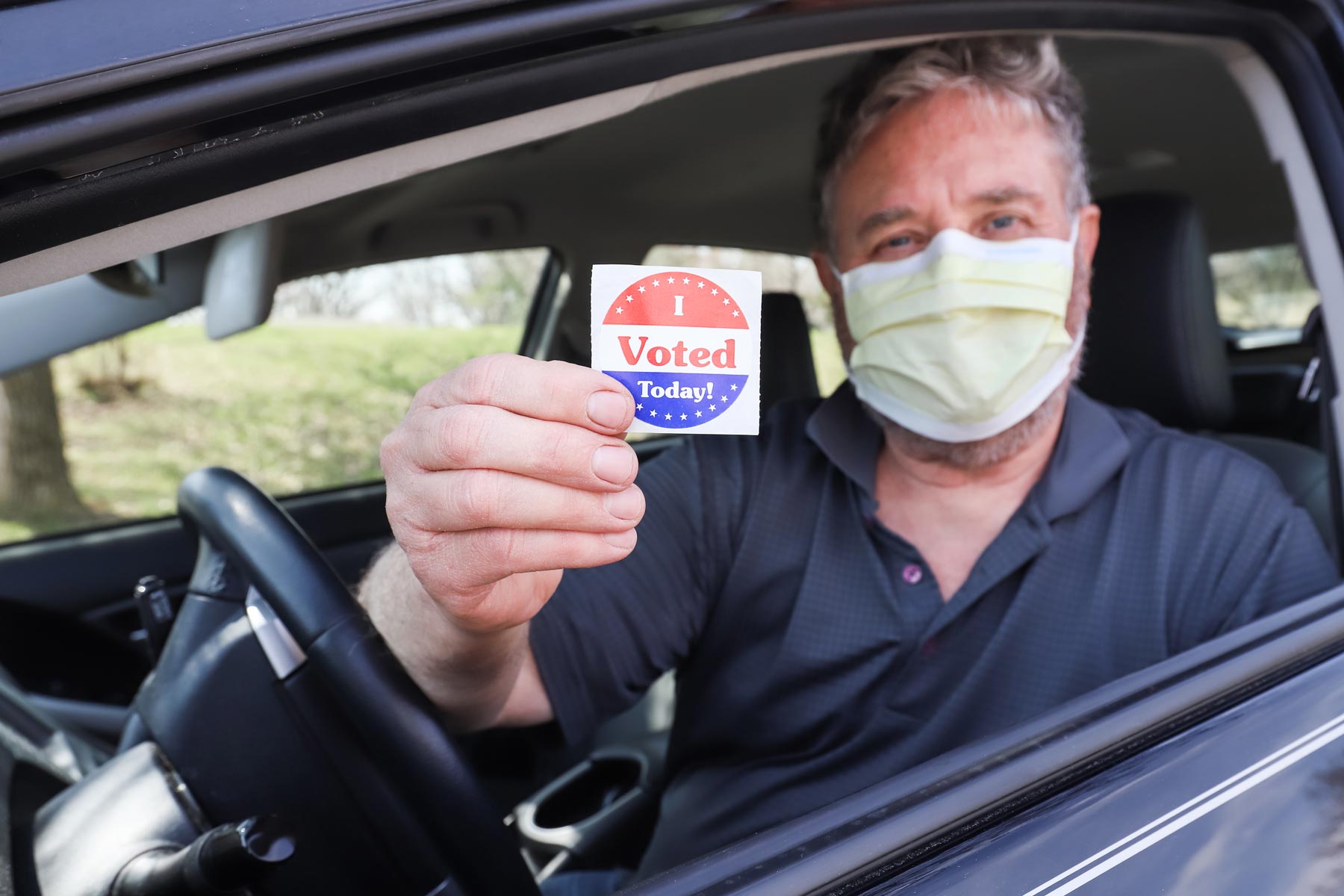Voter Intimidation

Voting in the 2020 election ends in two weeks. I would say its in two weeks, but 35 million Americans have already voted as of the time of this email.
It is important for us to understand the rules protecting voters against intimidation or supersession. Voting in
America is flooded with examples of voter intimidation and voter suppression in the past. By 1940, voter suppression
campaigns were so successful that only 3% of eligible African-Americans in the South were registered to vote.
In the last few weeks, we see news reports of limited polling places and long lines, which affects access. We all
know that not all Americans vote, it seems to be declining and we complain about voter apathy.
- The 5th Circuit Court of Appeals recently ruled Texas could have one mail-in drop off location per county, including
counties with millions of people. - In 2016, Arizona had long (5 hours) voting lines – resulting in lawsuits and apologies from
election officials. Predominantly Latino areas were disproportionately affected. - In Phoenix—which is a majority-minority city and the largest metropolitan area in the state—there was only one
polling site per 108,000 residents- with some predominantly non-Latino white communities having a polling site
for as few as 8,500 residents.
In St. Louis, I have worked at polls with hours-long lines in higher minority residential areas and my polling place
in a whiter area is pretty short.
And just two weeks ago, our president has criticized the voting process and legitimacy, with varying replies about
accepting results. In the national debate urge supporters to go into the polls and ‘watch very closely’ while
questioning the integrity of the 2020 election.
Fears of voter intimidation follow this.

Here’s a pic of my dad telling my son voter intimidation stories.
What Is Voter Intimidation?
Under the law, voter intimidation is defined as the use of threats, coercion, or attempts to intimidate
for the purpose of interfering with the right of another person to vote or to vote for the person of their choosing.
Voter intimidation is still a problem in the United States and may be a growing problem especially with the
controversial presidential election that is coming up. Below are some examples that Voters have reported as
intimidation tactics:
- Physically blocking polling places
- Using threatening language in or near a polling place
- Yelling at people or calling people names while they are in line to vote
- Disrupting or interrogating voters
- Looking over people’s shoulders while they are voting
- Questioning voters about their political choices, citizenship status, or criminal record
- Displaying false or misleading signage
- Spreading false information about voting requirements and procedures
Voter intimidation greatly exceeds voter fraud.

Federal Laws Protecting Voters
Over the years Congress has recognized that voter intimidation undermined the principles of democracy and in 1940
passed laws that criminalized voter intimidation.
Voter intimidation is defined under 18 U.S.C. § 594 which states that:
whoever intimidates, threatens, coerces, or attempts to intimidate, threaten, or coerce, any other person
for the purpose of interfering with the right of such other person to vote or to vote as he may choose, or of
causing such other person to vote for, or not to vote for, any candidate for the office of President, Vice
President, Presidential elector, Member of the Senate, Member of the House of Representatives, Delegate from the
District of Columbia, or Resident Commissioner, at any election held solely or in part for the purpose of electing
such candidate, shall be fined under this title or imprisoned not more than one year, or both.
Other voter intimidation-related laws include:
- The Ku Klux Klan Act of 1871, which protected newly-freed slaves from harassment at the polls
- The Voting Rights Act of 1965, which prohibited intimidation, threats, and coercion.
Voter intimidation is a felony – a person found guilty of violating the federal voter intimidation law can be
sentenced up to one year in prison and fines up to $1,000 fine.
Missouri Laws Protecting Voters
Voter suppression, intimidation, misleading information and disorderly conduct is illegal under Missouri law too. For
example, baseless challenges, intimidating voters, spreading false information or interfering with a voter or
polling place may result in criminal or civil penalties. Any activity that threatens, harasses or intimidates voters
should be reported to the authorities below.
Did you know that a voter’s identity or qualifications may be challenged by election personal or duly authorized
challengers? (not by anyone in the polling place).

Missouri laws allows challengers credentialed by political parties to be present in the polling place and challenge a
voter’s eligibility. Mo. Rev. Stat. § § 115.105.1, 115.429.2. Each party is allowed to designate a watcher only at
locations where votes are counted, who are there to observe the counting of votes. Mo. Rev. Stat. § 115.107.1
Further, under Mo. Rev. Stat. § 115.105.1 challengers:
- must be registered voters in the election jurisdiction,
- had their names submitted to the Election Board before Election Day by their political party, and have
credentials on them. - cannot approach voters directly to request information or identification, or invade their privacy while voting.
All a challenger may do is raise a challenge to the voter’s eligibility with a poll worker. However, a challenge can
only be made when the challenger reason to believe the election laws of the state have been or will be violated.
Voters should be aware of reports that some challengers may not be well-trained and are being encouraged to
aggressively challenge and in some instances have challenged voter’s eligibility on non-legitimate legal grounds.
Examples of challengers acting in a non-legitimate ground can include mass challenges, challenges targeted to
minority precincts or those based on information like foreclosure lists may violate the Constitution and Voting
Rights Act.
Under no circumstance should an eligible voter be denied a regular ballot solely on the basis that his eligibility is
challenged.
Only a select amount of people are allowed inside the polling place which include:
- watchers
- challengers
- law enforcement there at the request of election official or in the line of duty
- children accompanying an adult in the process of voting
- international observers
- those administering a youth election
- and members of the media with identification
All other people are not allowed in polling places.
These people are only allowed to e in the polls as long as they are not interfering with the elections process. Mo.
Rev. Stat. § 115.409. All other people (other than election officials and voters) must be at least 25 feet from the
entrance to the polling place. Mo. Rev. Stat. § 115.637(18).
In Missouri, exit polling, surveying, electioneering, distributing election literature, posting signs regarding a
candidate or an election issue are prohibited in the polling place or within 25 feet of the polling place.
Finally, it is illegal in Missouri for anyone at a polling place (inside or out) to breach the peace, engage in
disorderly conduct or impede the election process. Mo. Rev. Stat. § 115.637.
If any of these laws are broken the polling site should be reported immediately.

Missouri Law About Intimidation and Deceptive Voting Practices
Missouri Law further prohibits anyone one to induce, threaten, impede or prevent or attempt to impede or prevent
someone from voting by abduction, duress or any fraudulent device. Mo. Rev. Stat. § 115.635 (1)(2)(3).
Missouri further prohibits employers to prevent employees from engaging in political activities, for anyone to
interfere or attempt to interfere with voting in the polling place, or to engage in any disorderly conduct, breach
of peace, violence or threats or violence that will impede or interfere with the election. Mo. Rev. Stat. § 115.637
Voters should also be aware of misleading information that confuses voters and prevents them from voting is illegal
under Missouri Law.
Any information that disseminates untrue information about the timing of the election, or erroneously tells voters
that they cannot vote if they have back-due child support, owed back taxes, have an outstanding warrant, have unpaid
tickets or have had their home foreclosed upon.
In addition, it is illegal for anyone to attempt to coerce, intimidate or bribe any member or employee to vote or
refrain from voting in a particular way. Mo. Rev. Stat. § 130.028
Voter intimidation is a huge issue that most voters are not aware of but should be. Voters who experience voter
intimidation should report all illegal challengers or watchers conduct, voter intimidations or deceptive practices
to the following agencies:
- U.S. Department of Justice Voting Rights Hotline: 800-253-3931; TTY line 877-267-8971; Advancement Project Voter Protection: 202-728-9557
- Election Protection Hotlines: 866-OUR-VOTE (866-687-8683) or 888-VE-Y-VOTA (888 839-8682)

